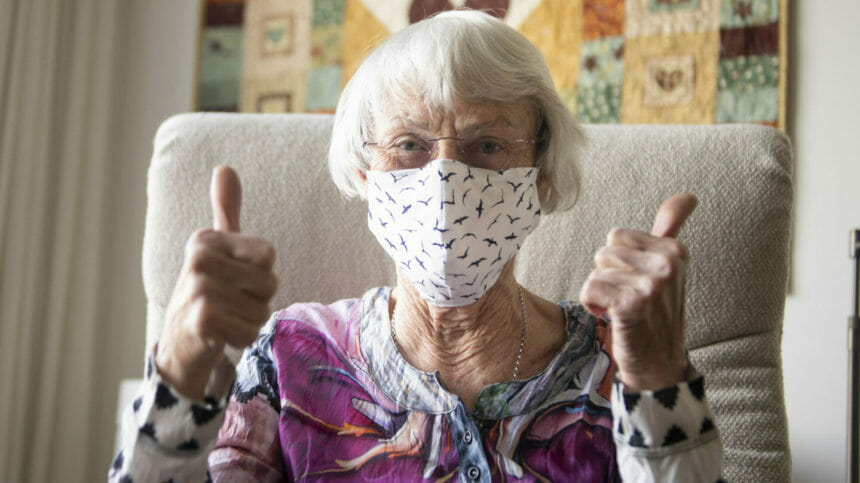
A mask-covered face can hamper communication between providers and residents. But some simple tips can help, says the American Speech-Language-Hearing Association.
To counteract the effects of muffled voices and lost ability to read lips and facial expressions, ASHA recommends the following:
- Have your communication partner’s attention before speaking.
- Face your partner directly, and make sure nothing is blocking your view.
- Talk a little louder (don’t shout) and a little slower.
- Use your hands and your body language.
- Ask if your partner understood you. If not, say it a different way or write it down.
- Move to a quiet place if possible.
- When talking with someone new, ask if there’s anything you can do to make communication easier.
- When appropriate, consider using a mask with a clear panel over the mouth or a clear face shield.
Mask wearing can also be uncomfortable for people who wear hearing aids or have cochlear implants. ASHA advises that users:
- Secure the device with wig tape or another non-damaging material, such as a cloth headband.
- Use a button extender to attach the mask behind the head rather than looping it over the ears.
- Remove the mask in a safe place, then check to make sure the device is working.
- Choose a mask that has four string ties rather than ear loops.
A report illustrating how masks degrade speech perception can be found here.
In other mask-related news
Most seniors approve of mask-wearing: A new SeniorList report finds that 76% of older adults “disapprove” or “strongly disapprove” of an individual’s decision not to wear a mask in public. Over half are concerned that they will contract COVID-19. Only 14% of seniors say they are not concerned. And most seniors (66%) are only leaving their house a “few times per week” or “not at all.”




